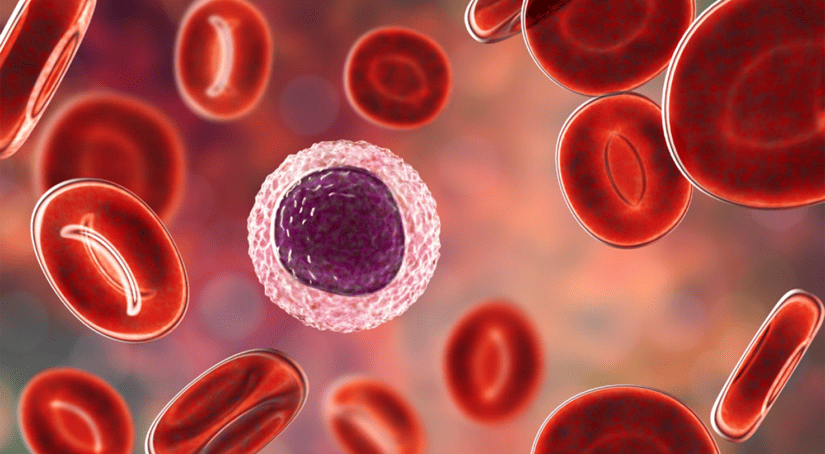Exploring The Relationship Between Blood And Cancer

Cancer is a complex disease that affects millions of people worldwide. Despite advances in medical technology and treatments, cancer remains a leading cause of death globally.
One area of cancer research that has gained increasing attention is the relationship between blood and cancer. Scientists have long known that cancer cells can spread through the bloodstream, but recent research has shed new light on the role of blood in cancer development, detection, and treatment.
In this article, we will delve into the fascinating world of blood and cancer. We will explore the biology of blood, how cancer cells spread through the bloodstream, and the latest advances in blood-based cancer research.
We will also discuss the importance of early diagnosis, blood-based biomarkers for cancer, and the potential of blood-based therapies for cancer treatment. By understanding the relationship between blood and cancer, we can develop new strategies for preventing, detecting, and treating this devastating disease.
Key Takeaways
- Blood plays a critical role in delivering oxygen and nutrients, and blood and cancer research is gaining attention.
- Leukemia and lymphoma originate in blood cells or the lymphatic system, and blood tests can diagnose and monitor progression.
- Blood-based biomarkers, such as liquid biopsies, can detect early-stage cancer, improving patient outcomes.
- Blood-based therapies, including immunotherapy and CAR T cells, show promising results and are likely to improve outcomes in the future.
The Role of Blood in the Body
The intricate network of blood vessels and blood cells in the human body plays a critical role in delivering oxygen and nutrients to tissues and organs, as well as removing waste products, highlighting the vital importance of blood in maintaining overall health and functioning.
Blood consists of various components, including red blood cells, white blood cells, platelets, and plasma. Red blood cells, also known as erythrocytes, are responsible for carrying oxygen from the lungs to the body’s tissues, while white blood cells, or leukocytes, play a crucial role in fighting infections and diseases. Platelets, on the other hand, help the blood to clot when there is an injury, preventing excessive bleeding, and plasma is the liquid component of blood that carries nutrients, hormones, and waste products.
The health of the blood is crucial for overall health, and any abnormalities in the blood can lead to serious health problems, including cancer. Blood cancers, such as leukemia and lymphoma, originate in the blood cells or lymphatic system, disrupting the normal functioning of these systems.
Blood tests are often used to diagnose and monitor the progression of these cancers, and treatments may include chemotherapy, radiation therapy, or stem cell transplants. Understanding the role of blood in the body and its relationship with cancer is critical in developing effective treatments and improving outcomes for patients.
How Cancer Spreads through the Bloodstream
Cancerous cells have the ability to detach from the primary tumor and enter the bloodstream, where they can travel to distant organs and form secondary tumors. This process is known as metastasis and is a major cause of cancer-related deaths.
Understanding how cancer spreads through the bloodstream is crucial in identifying new therapeutic targets and developing effective treatments for cancer.
To better understand the process of cancer metastasis through the bloodstream, researchers have identified several key factors. These include the ability of cancer cells to survive in the bloodstream, the formation of clusters of cancer cells known as microemboli, and the interaction between cancer cells and the lining of blood vessels.
By gaining a better understanding of these factors, researchers hope to develop new treatments that can prevent or slow the spread of cancer through the bloodstream, ultimately improving patient outcomes.
Detecting Cancer through Blood Tests
Identifying cancer in its early stages can be challenging, but recent developments in blood testing technology have made it possible to detect cancer through the analysis of blood samples. Blood tests can analyze the levels of certain markers or substances in the blood that may indicate the presence of cancer.
One such test is the liquid biopsy, which is a non-invasive procedure that involves taking a small sample of blood and analyzing it for the presence of cancer cells or DNA fragments. Liquid biopsies have shown great potential in detecting early-stage cancer, as they can detect cancer cells or DNA fragments before any symptoms appear. However, the accuracy of liquid biopsies varies depending on the type of cancer being tested and the stage of the disease. In addition, false positive results can occur, leading to unnecessary medical interventions or anxiety for patients.
Despite these limitations, the development of blood testing technology for cancer detection is a promising area of research that has the potential to revolutionize early cancer diagnosis and improve patient outcomes.
The Importance of Early Diagnosis
Early detection of malignancies can significantly impact patient outcomes and is crucial in ensuring effective treatment and management of cancer. The earlier cancer is detected, the higher the chances of successful treatment and survival. This is particularly important for blood cancers, such as leukemia and lymphoma, which often do not exhibit symptoms until they have progressed to later stages. Blood tests, such as complete blood count (CBC) and flow cytometry, can aid in early detection by identifying abnormal cells or changes in blood cell counts.
A key benefit of early detection is the ability to start treatment at an earlier stage, when the cancer is typically more responsive to treatment. This can also lead to less aggressive and invasive treatment options, which can improve patient quality of life. Additionally, early detection can provide opportunities for patients to participate in clinical trials and access new and emerging treatments. Overall, the importance of early diagnosis in detecting and treating blood cancers cannot be overstated, and efforts should be made to increase awareness and access to screening and testing options.
| Pros of Early Diagnosis | Cons of Late Diagnosis |
|---|---|
| Higher chances of successful treatment and survival | More aggressive and invasive treatment options |
| Improved patient quality of life | Limited treatment options |
| Access to clinical trials and new treatments | Higher healthcare costs |
Blood-Based Biomarkers for Cancer
One promising area of research in the field of oncology involves the use of blood-based biomarkers to aid in the diagnosis and monitoring of various types of malignancies. These biomarkers are substances that are found in the blood and can indicate the presence of cancer. They can be used in conjunction with traditional imaging techniques, such as CT scans and MRIs, to provide a more accurate diagnosis of cancer.
There are two main types of blood-based biomarkers: circulating tumor cells and circulating tumor DNA. Circulating tumor cells are cancer cells that have broken away from the primary tumor and entered the bloodstream. They can be isolated and analyzed to provide information about the specific type of cancer present.
Circulating tumor DNA, on the other hand, is DNA that is shed by cancer cells into the bloodstream. It can be detected and analyzed to provide information about the genetic mutations present in the cancer cells. By utilizing these biomarkers, doctors can potentially diagnose cancer at an earlier stage and track its progression over time, leading to more effective treatment outcomes.
Blood-Based Therapies for Cancer
Blood-based therapies have shown promise in the treatment of various malignancies and are a potential avenue for improving patient outcomes. One such therapy is the use of blood transfusions to treat cancer-related anemia. Cancer patients often experience anemia as a result of chemotherapy or radiation treatment, which can lead to fatigue and a decreased quality of life.
Blood transfusions can help to restore hemoglobin levels and improve symptoms. However, it is important to note that transfusions are not a cure for cancer and do not address the underlying disease.
Another blood-based therapy being explored is the use of immunotherapy. This approach involves using a patient’s own immune system to fight cancer cells. Some forms of immunotherapy involve the use of cancer vaccines, which work by stimulating the immune system to recognize and attack cancer cells.
Other forms of immunotherapy involve the use of checkpoint inhibitors, which block certain proteins that can prevent the immune system from attacking cancer cells. While still in the early stages of development, these therapies have shown promising results in clinical trials and may provide a new avenue for treating various types of cancer.
The Future of Blood-Based Cancer Research
The advancement of research in blood-based therapies has the potential to revolutionize the treatment of cancer and improve patient outcomes.
One major area of focus in this field is the development of liquid biopsies, which are blood tests that can detect cancer by analyzing tiny fragments of DNA released by cancer cells into the bloodstream. This approach is less invasive and more convenient than traditional tissue biopsies, and has the potential to detect cancer at an earlier stage, when it is more treatable.
Another promising area of research is the use of immune cells from the blood to target cancer cells. The immune system can recognize and destroy cancer cells, but sometimes the cancer cells can evade detection by the immune system.
Researchers are exploring ways to harness the power of the immune system by using genetically modified immune cells, called chimeric antigen receptor (CAR) T cells, to specifically target cancer cells. This approach has shown promising results in clinical trials for certain types of blood cancers, and is being studied for its potential in other types of cancer as well.
As research in blood-based cancer therapies continues to evolve, it is likely that new and innovative treatments will be developed that can improve outcomes for cancer patients.
Conclusion
In conclusion, the relationship between blood and cancer is complex and multifaceted. Blood plays a crucial role in the body, including transporting nutrients, oxygen, and waste products. Cancer can spread through the bloodstream and cause devastating consequences throughout the body.
Detecting cancer through blood tests is an important tool for early diagnosis, which is crucial for successful treatment outcomes. Blood-based biomarkers and therapies for cancer show promise in improving diagnosis and treatment options.
Moving forward, ongoing research into blood-based cancer detection and treatment will continue to be a crucial area of focus in the fight against cancer. The development of new technologies and techniques will help to improve the accuracy and reliability of blood-based tests, leading to earlier diagnosis and more effective treatments.
Ultimately, the relationship between blood and cancer is an important area of study that has the potential to improve outcomes for cancer patients and their families.









